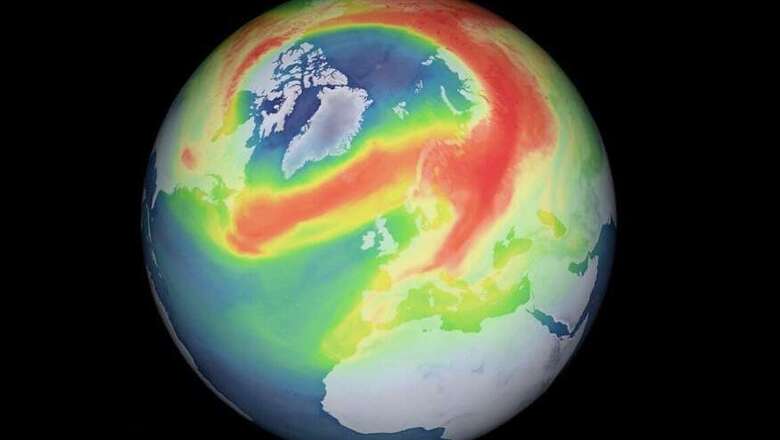
views
Just as we had gotten over rejoicing at the reports that the ozone hole above the Antarctic was apparently healing, we have some bad news. It turns out that a massive hole has opened up in the ozone layer above the Arctic. The reason this time around seems to be the climate change which the Earth has been bearing for a while now. Apparently, the atypically cooler temperatures in the atmosphere above the north pole, for this time of the year, have led to this rapid depletion of the ozone in that region.
“Scientists using data from the Copernicus Sentinel-5P satellite have noticed a strong reduction of ozone concentrations over the Arctic. Unusual atmospheric conditions, including freezing temperatures in the stratosphere, have led ozone levels to plummet—causing a 'mini-hole' in the ozone layer,” says the European Space Agency, in an official statement. They say that while mini ozone holes have been spotted over the North Pole in the past too, this year, the depletion over the Arctic is much larger than ever before. Scientists from the German Aerospace Center (DLR) report this unusually strong depletion of ozone over the northern polar regions. “Using data from the Tropomi instrument on the Copernicus Sentinel-5P satellite, they were able to monitor this Arctic ozone hole form in the atmosphere,” they add.
The ozone is critical to sustain life on earth. It is a protective shield in the Earth’s stratosphere which absorbs most of the ultraviolet radiation from the sun. Without this layer, life will not be able to survive on the planet, and in case this layer thins out or continues to form holes, it will increase illnesses such as skin cancer and cataracts, as well as extensive environmental damage.




















Comments
0 comment